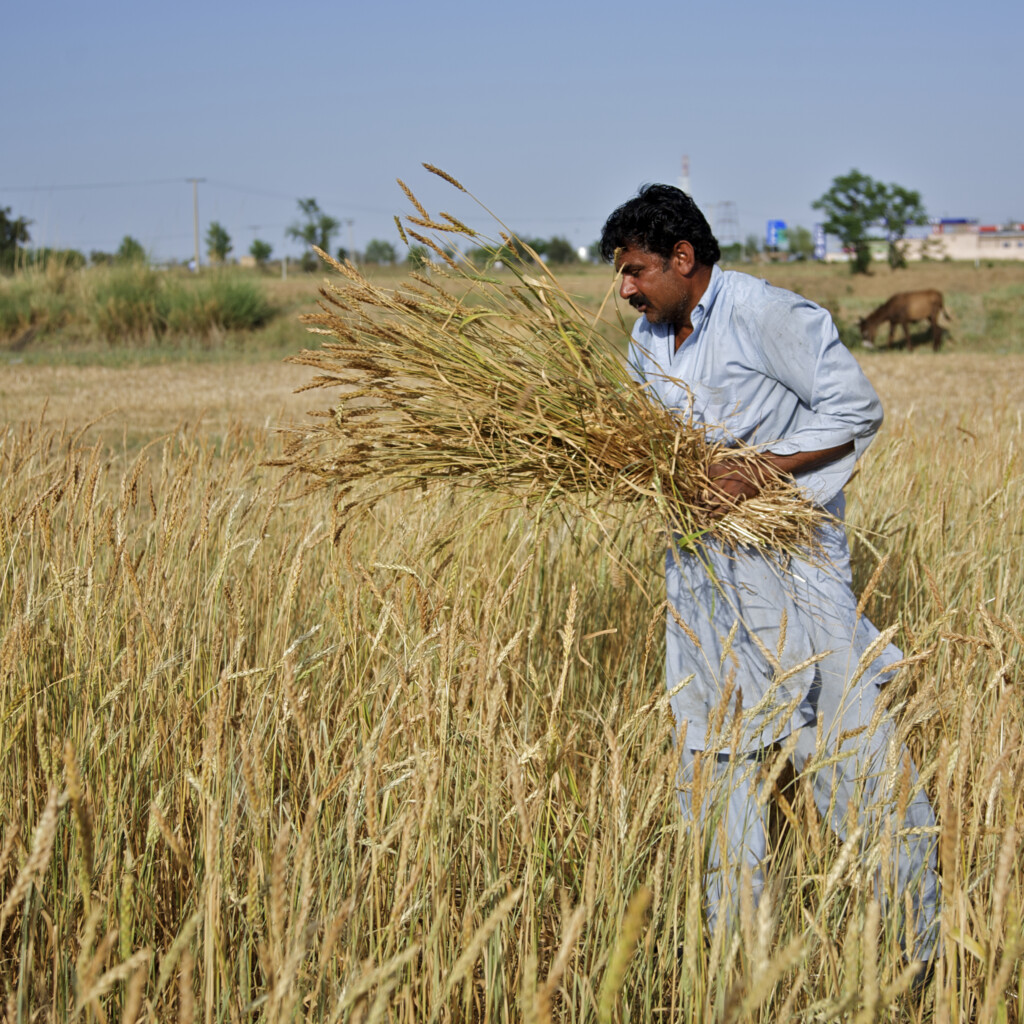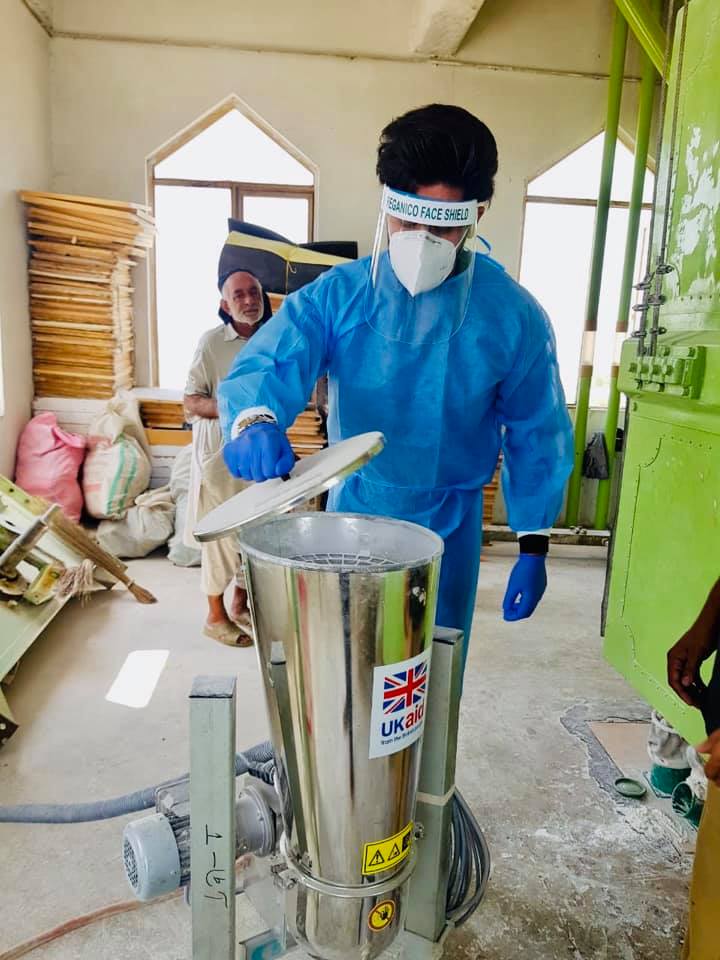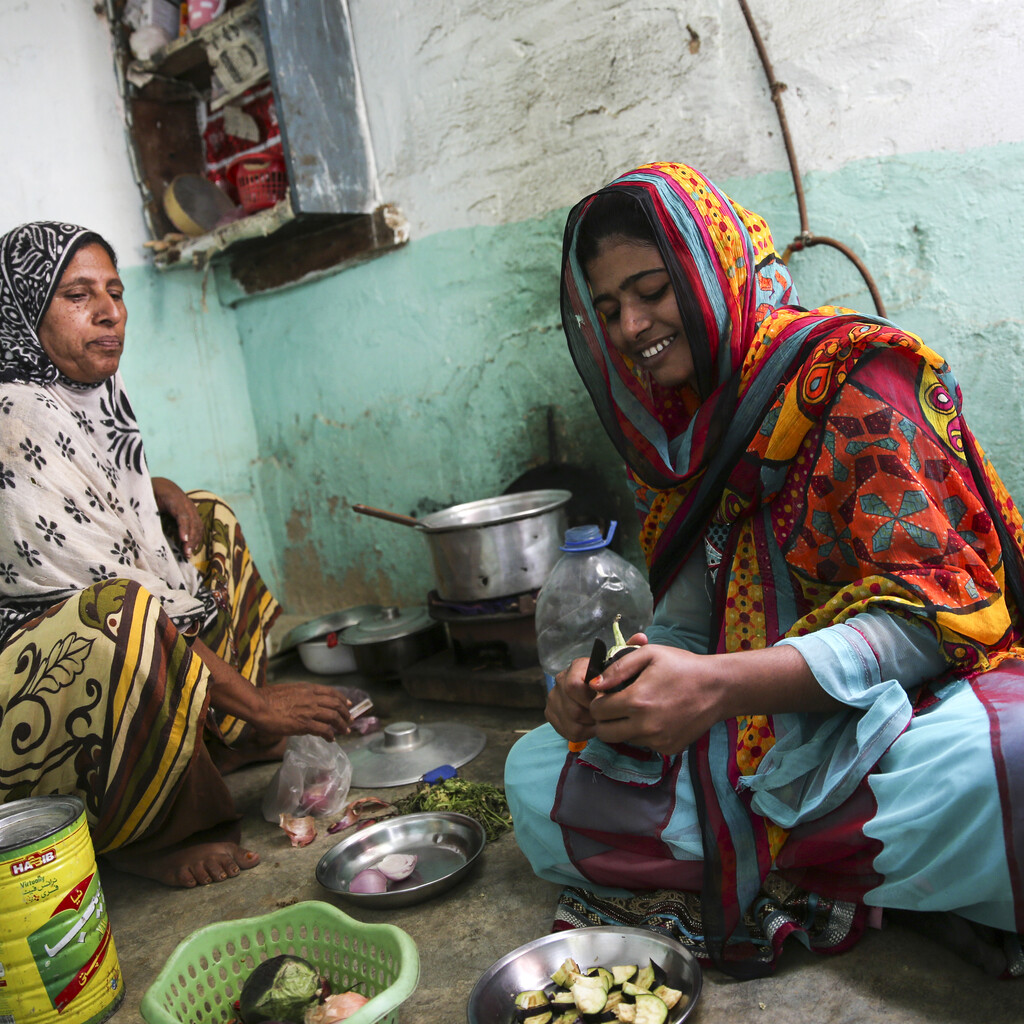Nutrition International’s large-scale food fortification (LSFF) programs, active in nine countries across Africa and Asia, aim to improve diets and reduce micronutrient inadequacies within populations. This includes the fortification of staple foods like wheat flour, maize flour, rice and oil, in addition to condiments such as salt. Our country-level efforts include advocacy with decision makers, evidence generation and dissemination among relevant stakeholders to support strengthening fortification guiding structures, including policies, legislation and standards. We also provide technical assistance to governments and industry partners to strengthen and sustain the production and availability of adequately fortified foods, as well as leveraging existing market-based platforms and social safety net programs to reach populations at scale with the micronutrients they need in an optimal mix of interventions.
Building on the success of the Food Fortification Program in Pakistan, we scaled our support to the country to help legislate mandatory fortification of wheat flour with iron, folic acid, zinc and other micronutrients. This led to the governments of Sindh, Balochistan and Khyber Pakhtunkhwa adopting mandatory legislation, with Punjab province following closely behind. Similarly, our advocacy work in Indonesia prompted the Ministry of Industries to update the country’s wheat flour fortification standard to be aligned with the WHO’s recommendation. Consequently, 85% of all wheat flour produced in 2022 was adequately fortified as per the revised standard.
In Ethiopia, we are leading a collaborative effort to support the development of salt double-fortified with iodine and folic acid into the market. This endeavor aims to improve women’s folate status, which will eventually prevent neural tube defects and iodine deficiency disorders. Evidence of the product’s benefits, how well it’s received by the population and its sustainability will shape the development of analytical models and tools that will provide decision makers with necessary data to establish regulations, standards and policies to legislate the intervention.
On a global scale, we have played a pivotal role in driving the food fortification agenda. We developed a novel global Food Fortification Framework, in collaboration with our partners, to guide fortification planning and programming. In the lead-up to the 76th World Health Assembly (WHA), we supported our partners in calling upon the WHO and its member states to accelerate efforts for the delivery of essential micronutrients through food fortification. The resolution was approved by WHA, and we expect that it will foster further interest and acceptance of food fortification strategies and financing across the globe. In addition, we are collaborating with the WHO to explore the potential of digital technologies in food fortification.
As a result of our efforts, 267 million people, including 69 million women aged 15-49, had improved access to fortified foods, which resulted in approximately eight million cases of anaemia averted.


